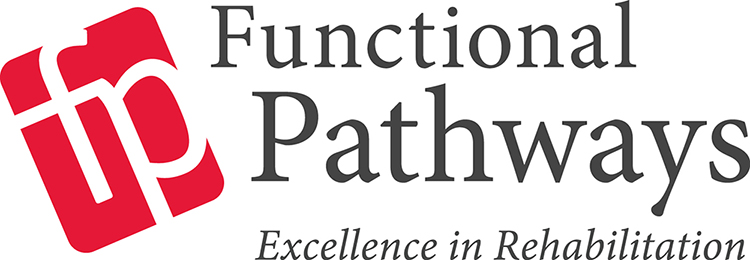It is official! As part of its court-directed educational campaign, on December 6, 2013, the Centers for Medicare & Medicaid Services (“CMS”) published revisions to several portions of the Medicare Benefit Policy Manual pursuant to the settlement agreement in the case of Jimmo et al. v. Sebelius, which requires the agency to clarify key components of the Medicare coverage requirements for Skilled Nursing Facilities (“SNFs”), Inpatient Rehabilitation Facilities (“IRFs”), Home Health (“HH”), and Outpatient Therapy (“OPT”) related to skilled nursing and rehabilitation care. Although the provisions have an implementation date of January 7, 2014, CMS has reiterated that the changes have no true “effective date” from a practical standpoint, as they reflect long-standing agency policy and nothing in the Jimmo settlement agreement has modified, contracted, or expanded the existing Medicare eligibility requirements for skilled care. The publication of the Manual changes was followed by an educational call for Medicare contractors on December 16, 2013 and a CMS National Provider Call on December 19, 2013.
My blog entry today summarizes certain important Manual changes, in addition to key highlights from the CMS National Provider Call as they pertain to the provision of skilled therapy services.
1. Clarifications on “Improvement Standard” and New Focus on “Skilled Care”
The Manual changes include extensive language, as well as several examples, to highlight that an “Improvement Standard” may not be applied as a basis for denial of maintenance claims for which skilled care is required in the SNF, HH, and OPT settings. The primary addition to the Manual provides that coverage for skilled care does not turn on the presence or absence of an individual patient’s potential for improvement, but rather on the patient’s need for skilled care to improve or maintain the patient’s current condition, or to prevent or slow further deterioration.
As a result, CMS appears to refocus medical review efforts on the presence or absence of skilled care. Manual provisions further highlight that the skilled care criterion is met when an assessment of the individual patient’s clinical conditions support the need for the specialized judgment, knowledge and skills of a qualified therapist. In addition, to be considered a skilled service, the services provided must be a level of complexity such that they can only be safely and effectively performed by, or under the supervision of, such skilled staff. However, CMS re-emphasizes that a service that typically may be considered unskilled may be classified as a skilled service based on an individual patient’s special medical complications that necessitate the skills of a therapist be provided.
2. Setting-Specific Limitations on the Use of Therapy Assistants
Consistent with the agency’s previous practice of limiting the use of therapy assistants in the home health and outpatient settings, the Manual revisions for HH explicitly provide that any maintenance program billed as skilled care must be performed by a qualified therapist, not an assistant. Similarly, the Manual provisions regarding OPT services states that physical therapy assistants may not “develop, manage, or furnish skilled maintenance program services” or take responsibility for such services. In contrast, the agency appears to allow for skilled maintenance therapy rendered in the SNF setting to be performed either by a qualified therapy or a therapy assistant under the direct supervision of a qualified therapist (i.e. on-site at the facility).
3. Differentiating Rehabilitative/Restorative Therapy and Maintenance Therapy
In clarifying the coverage standards for skilled rehabilitation, the agency distinguishes patients requiring rehabilitative/restorative therapy from those patients requiring maintenance therapy, and notes that an expectation of improvement would be an appropriate consideration for those patients receiving rehabilitative/restorative therapy in the SNF, HH, and OPT. Rehabilitative/restorative therapy is defined as those services provided with a goal of reversing, in whole or in part, a patient’s loss of function. In contrast, maintenance therapy is appropriate where the patient’s special medical complications or the complexity of the therapy procedures is such that skilled care is required to ensure the safe and effective performance of a maintenance program.
4. Additional Guidance on Appropriate Documentation
Although the Jimmo settlement itself did not address medical record documentation, CMS included additional guidance related to documentation in the revised Manual provisions. While CMS notes that the presence (or absence) of such documentation is not an element of the definition for “skilled” services, the agency states that appropriate documentation is a critical part of supporting the need for the skilled services upon medical review by a Medicare contractor. By adding specific guidance on “best practices” for documentation to several portions of the Manual, CMS appears to suggest that the absence or lack of such documentation may serve as the basis for a medical necessity denial.
For example, under the SNF portion of the Manual, CMS notes that the patient’s medical record must document:
· The history and physical exam pertinent to the patient’s care, (including the response or changes in behavior to previously administered skilled services)
· The skilled services provided
· The patient’s response to the skilled services provided during the current visit
· The plan for future care based on the rationale of prior results
· A detailed rationale that explains the need for the skilled service in light of the patient’s overall medical condition and experiences
· The complexity of the service to be performed
· Any other pertinent characteristics of the patient
In addition, the Manual provisions provide that “vague or subjective” descriptions of the patient’s care will not be adequate to support skilled services. Examples of such terminology are provided and include notes such as “patient tolerated treatment well,” “continue with plan of care,” and “patient remains stable.”
The argument can be made that the Manual revisions go beyond the intentions of the actual Jimmo settlement. The intent and the goal of revising the Manual, was to clarify CMS policy regarding the “Improvement Standard” and preclude improper denials by Medicare contractors for appropriate skilled care. However, instead of clarifying only those sections related to the improper “Improvement Standard,” CMS has made significant changes to the Manual to add guidance on the documentation required to support the patient’s need for and the provider’s provision of skilled care. Even though the agency reiterated that it’s intent was not to create any new obligations related to documentation on the CMS National Provider Call, it is likely that these provisions related to documentation will serve as de facto coverage requirements for skilled care in future medical reviews.


Comments (0)